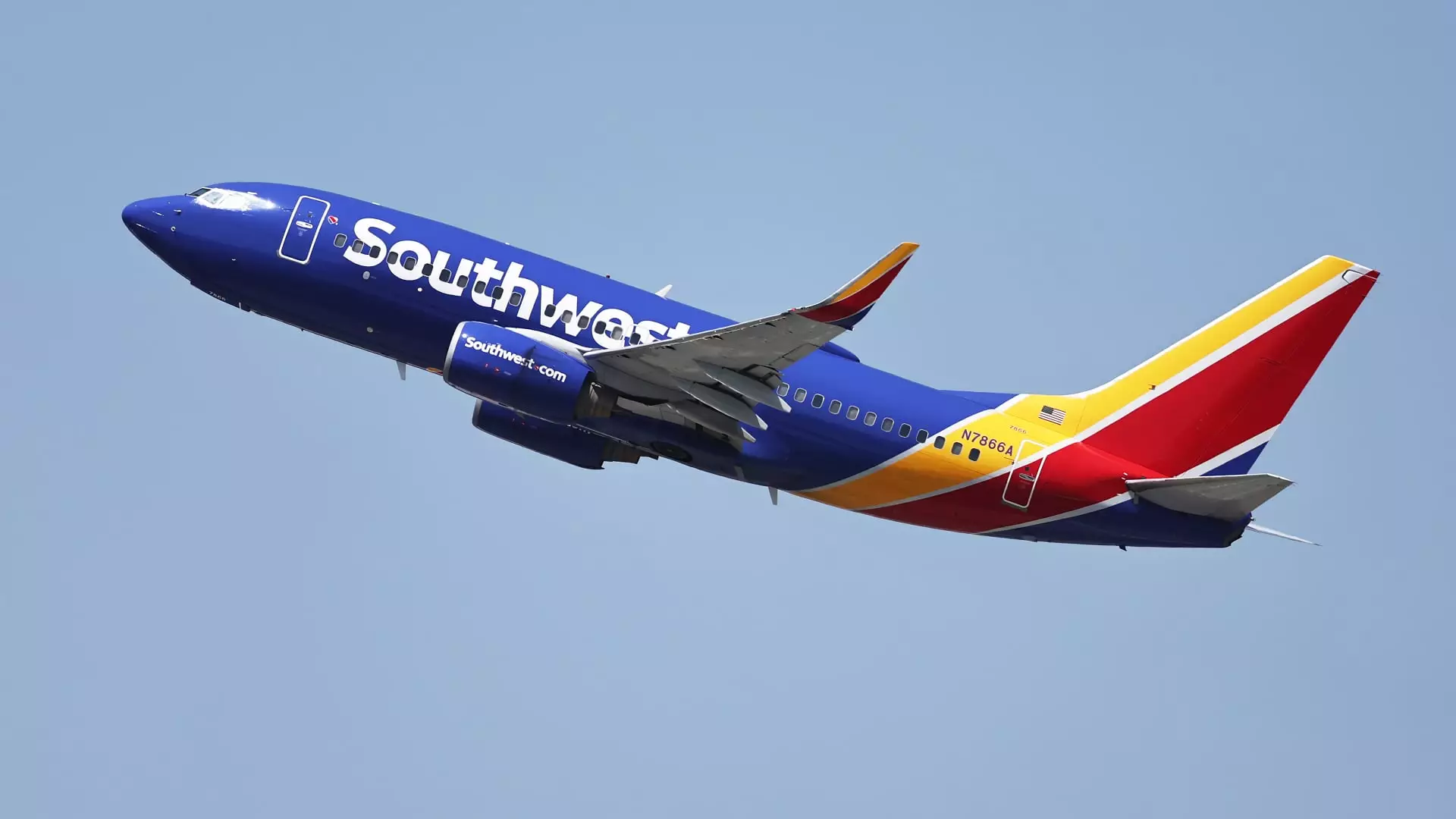The airline industry is witnessing a promising trend as Southwest Airlines and American Airlines recently updated their fourth-quarter forecasts, reflecting the resilience of air travel demand. Both airlines attribute their optimistic outlooks to a surge in passenger demand and a favorable pricing environment, resulting in rising fares. This positive sentiment has translated into an uptick in their stock prices, marking a hopeful recovery trajectory from the tumultuous periods of past years.
Southwest Airlines, in particular, has emphasized a substantial upward revision to its unit revenue expectations for the fourth quarter. Previously forecasting an increase of no more than 5.5%, the airline is now anticipating a rise in unit revenue between 5.5% and 7% compared to the same period last year. This shift can be attributed to strategic modifications in its route network aimed at eliminating unprofitable flights, which seem to be yielding dividends in terms of both revenue and customer demand. The airline’s confidence is buoyed by robust forward bookings, especially around the busy holiday travel season.
Southwest’s positive economic outlook is not merely a short-term success but suggests a more sustainable growth strategy moving into 2025. With the airline’s plans for completing its first sale-leaseback of aircraft in early 2024, there is an indication of its commitment to optimizing operational efficiency. This decision reflects a broader industry trend where airlines are exploring liquidity options to fortify their financial positions, ensuring they can withstand future fluctuations in travel demand.
American Airlines has also demonstrated resilience, revising its unit revenue forecast upwards, projecting a modest increase of up to 1% for the last quarter of 2023. This comes as a significant turnaround from previous estimates, which had anticipated a decrease of up to 3%. Additionally, American Airlines has raised its adjusted earnings estimate substantially, signaling confidence that could further bolster investor sentiment. The decision to partner with Citi as its primary credit card provider, moving away from Barclays, suggests that American is strategically positioning itself to enhance customer engagement and financial services.
In a related narrative, JetBlue Airways has followed suit, recently announcing an increased revenue outlook for the quarter while taking proactive measures to streamline operations. The airline indicated plans to further cut unprofitable routes, which reflects a heightened focus on operational sustainability. With adjustments planned for its summer 2025 European schedule, JetBlue is keen on maintaining competitive offerings while ensuring profitability.
The recent announcements from Southwest, American, and JetBlue Airlines denote a significant moment in the airline industry. With rising expectations come greater accountability, as these carriers must now deliver on their revised targets in an ever-evolving market landscape. The focus on strategic adjustments and customer responsiveness may very well determine their success in navigating the complexities of post-pandemic air travel. As the industry seeks to recover fully, these optimistic signals could resonate positively among stakeholders and bolster public confidence in air travel, heralding a new chapter characterized by adaptability and resilience.


Leave a Reply